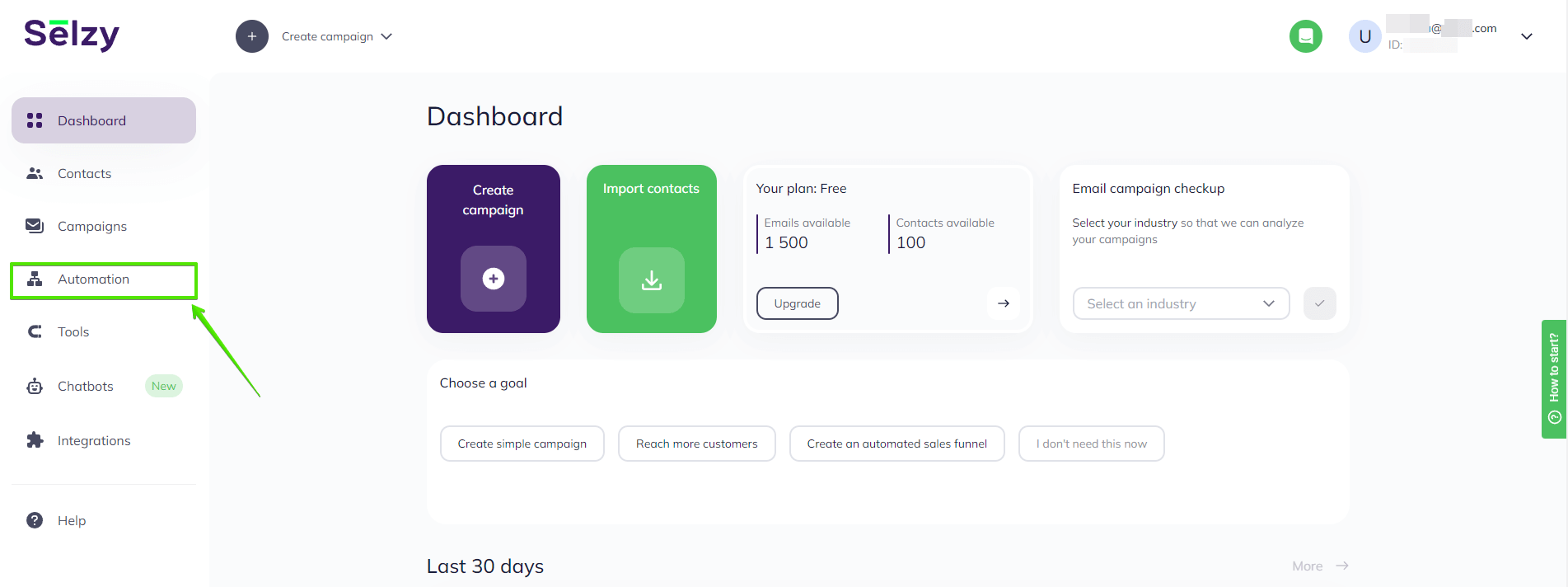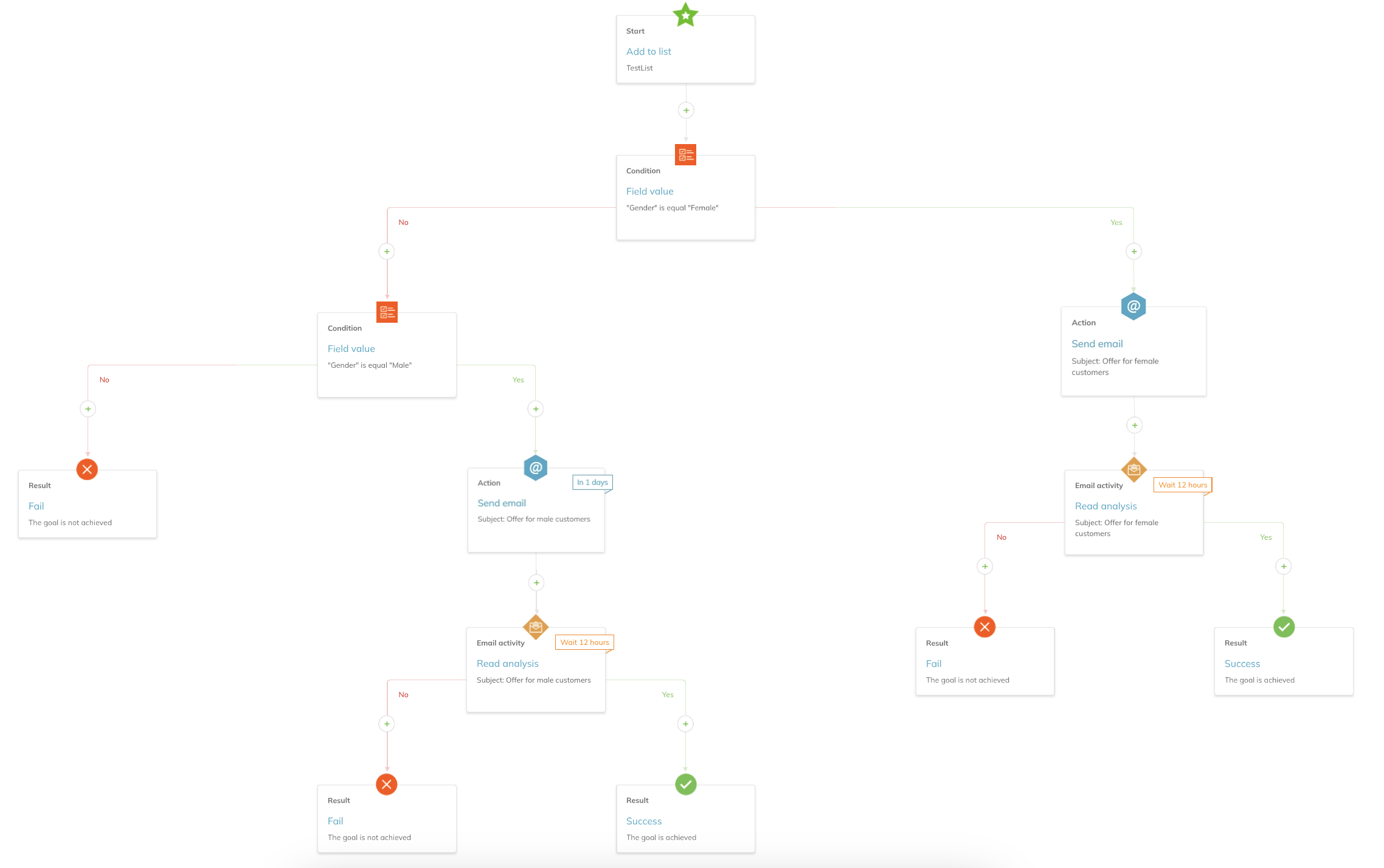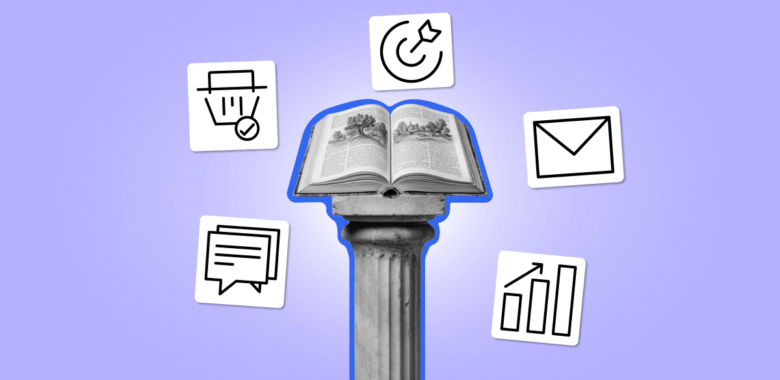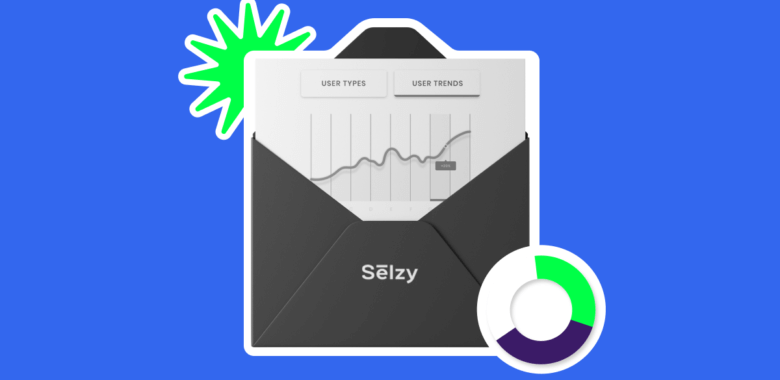Automation is an email or a series of emails triggered by a subscriber’s action or an email marketer’s action.
Here are some common automation examples and ideas:
- Welcome series — to greet new subscribers and give them a newcomer’s discount.
- Browse and cart abandonment — to remind your customers of the products or services they’ve been interested in.
- Post-purchase email — to thank customers for shopping with you and ask for a review.
- Product or service recommendation — to cross-sell something based on a person’s purchase history, etc.
Email automation has two main benefits:
Automation saves your time and resources.
You can spend hours writing emails to each individual subscriber. If you have 100 subscribers and one email takes you about 2 minutes, that’s more than 3 hours wasted. Automation frees your and your coworkers' time and resources. It will take 10 minutes to set up an automation, and the rest of the 3 hours can be spent on more critical tasks.
Plus, you only need to set the automation once, and it will scale with your subscribership. So when your subscriber numbers grow, you don’t need to do anything else. The automation will affect 1,000 subscribers the same way it affected 100.
Automation enhances customer experience.
Automation allows you to constantly respond to customers’ actions, even outside working hours. For example, a person signed up for your newsletter via a subscription form on the website. Thanks to automation, they will receive a confirmation email right away.

These interactions show subscribers your company’s engagement and strengthen the connection between you. Plus, automation makes your communication more personalized: after all, your subscribers’ actions trigger the emails.
Basics of automation in Selzy
In Selzy, an automation sequence (chain) is a series of emails set up according to a certain script.
You can create an automation sequence in Selzy in the Automation section of the main panel of your personal account.

Let’s explore how automation works in Selzy.
In the email sequence (chain), a contact moves from a chain trigger to a result. In Selzy, the automation can be triggered when someone subscribes to your emails, you add a new contact to one of your email lists or a new tag or tags to one of your contacts. The result is failure or success.

Between the start and the finish of the automation, there are different actions and checks for users’ reactions.
An email sequence (chain) consists of blocks. These are chain elements in which an event occurs.

Inside a block, you can set the delay time. The action can happen with no delay or in a certain amount of time.

The Action block. Shows how the system should work in a particular block: send an email, change a field, add a subscriber, or delete a subscriber.

The Condition block. Checks the values of the subscriber’s fields and the subscriber's belonging to a particular list.

The Email activity block. Analyzes reads and clicks on links in the email. Before the Email activity block, there should be an email, so that there is something to analyze.

The Condition and Email activity blocks create Yes and No branches.

The branches are different reactions of the system to user actions (for the Email activity block) or characteristics (for the Condition block). For example, If the subscriber has opened the email, the automation sends them through the Yes branch. If not, it is a No branch.
The Result block. The final block in the chain, the success or failure of the script.

You can learn more about chain blocks in a separate article.
A sample automated chain walkthrough
For example, we want to send men and women different offers. Each gender will have its own email sequence with recommendations. Let's set up such a chain in Selzy.
Note that this is an example, and in practice, you can set up more gender options to suit your audience’s needs.
Let's start the automation by checking if the subscriber is in the right contact list.

Let's create a check for the gender field. Make sure you set up this field in your contact lists before you start the chain.

To women, we send one email:

And men will receive a different email:

After each email, we will check whether the subscribers have read it or not:

The whole chain with the check of the gender field will look like this:

How to view chain statistics
To view the statistics, click on the name of your automation.

Next, click on the statistics icon at the top.

You can see the number of contacts that have passed through each block and their status:

More about chain statistics.



